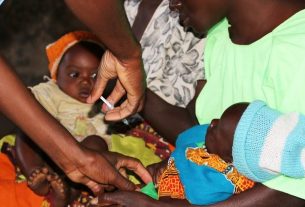Unconscious bias remains a persistent and damaging issue in the diagnosis and treatment of addiction and disability, especially among marginalized communities. This is particularly evident within Black, Hispanic, and other minority groups, where race, socio-economic background, and cultural factors often intersect to hinder access to proper care. Individuals in these groups are frequently subjected to bias in both the medical and social systems, resulting in delayed diagnoses, misdiagnoses, and ultimately a lack of the support they need. These inequities are evident in various spheres, including addiction treatment and the identification of learning disabilities.
The intersection of race and addiction, in particular, creates challenges in understanding and addressing the true nature of issues such as pornography addiction. Addiction, especially when linked to behavior such as compulsive pornography consumption, is often judged through a racialized lens. For instance, a Black male seeking help for pornography addiction might be met with assumptions based on racial biases. If he expresses a preference for specific types of pornography (e.g., Caucasian women), the individual is at risk of being stigmatized as a “pervert” or “racist.” This is in stark contrast to a white male with the same addiction, who is more likely to be perceived as simply struggling with a common addiction. This form of racialized bias in diagnosis not only undermines the individual’s dignity but can also prevent them from receiving effective treatment or appropriate care.
This type of racial stereotyping is further exacerbated by a broader societal narrative that often disregards the unique challenges faced by people of color. For example, addiction-related issues involving Black or Hispanic individuals are frequently marginalized or misunderstood. Racial biases can shape both public perceptions and clinical assessments, leading to underreporting, misdiagnosis, and ineffective treatment approaches. Research shows that individuals from these communities are less likely to receive proper mental health care, often due to racial stigmatization, social isolation, or lack of culturally competent care providers (Sue et al., 2019).
An example of how unconscious bias and lack of access to proper care can affect an individual’s life comes from my own experience. For several years, I struggled with dyslexia without understanding what was happening. Despite knowing that I possessed extraordinary problem-solving skills—evident in certain instances of exceptional performance—I was not diagnosed until a chance meeting with a disability officer. This officer, who happened to be wheelchair-bound and deeply empathetic, referred me to an elderly lady who eventually diagnosed me with dyslexia. Since receiving this diagnosis, I have experienced significant improvement in my academic and professional performance, as it allowed me to devise coping strategies and respond effectively to my challenges.
This experience highlights an essential point: the key to overcoming barriers in disability and addiction lies in awareness and recognition. Proper diagnosis is often the first step toward better understanding and addressing underlying conditions. Unfortunately, without access to accurate diagnoses and culturally competent care, many individuals, especially from minority communities, continue to struggle in silence, unable to access the help they need.
While the example I shared regarding my personal experience with dyslexia pertains specifically to learning disabilities, it provides insight into a broader issue that can be applied to addiction, particularly in the case of marginalized groups. Those dealing with addiction-related challenges—whether in the context of pornography, substance use, or other behaviors—may find it difficult to seek help due to fear of judgment or cultural stigmas. In communities where such issues are not openly discussed, the lack of support systems, coupled with the biases in healthcare and treatment options, can make it all the more difficult for individuals to overcome these challenges.
Addressing these issues requires a comprehensive, culturally sensitive approach to both addiction and disability. First and foremost, healthcare providers and mental health professionals must be aware of their own biases and how these might impact their ability to diagnose and treat individuals. Research suggests that the impact of racial bias in the healthcare system is significant, with studies showing that people of color are less likely to receive adequate treatment for both physical and mental health issues (LaVeist, 2005). In the case of addiction treatment, it is critical that healthcare providers adopt a more inclusive and non-judgmental approach that acknowledges the unique experiences of minority groups, rather than relying on stereotypes or preconceived notions.
Moreover, there is a pressing need for more diversity in healthcare professions, ensuring that people of different backgrounds, cultures, and experiences are represented in the diagnosis and treatment of addiction and disability. When healthcare providers come from diverse backgrounds themselves, they are better equipped to recognize the specific needs of individuals from their own or similar communities. This diversity can help ensure that people of color do not feel excluded or misunderstood when seeking treatment.
Finally, it is essential that society as a whole engages in a larger conversation about the intersectionality of race, addiction, and disability. By dismantling the stigmas and biases that persist across various sectors—be it healthcare, education, or social services—individuals will be able to access better care, support, and understanding. Acknowledging these biases and making deliberate efforts to combat them is not only a matter of fairness but also a crucial step in improving the well-being of marginalized communities.
In conclusion, addressing the unconscious bias surrounding addiction and disability is crucial for creating a more equitable healthcare system. By fostering a greater understanding of the unique challenges faced by minority groups and ensuring that individuals receive the appropriate care and treatment, society can take important steps toward addressing these longstanding issues. Only through awareness, compassion, and action can we truly support those who are most in need and work toward a more inclusive and supportive environment for all.
References
LaVeist, T. A. (2005). Disentangling race and socioeconomic status: A key to understanding health inequalities. Journal of Urban Health, 82(2), ii26-ii34. https://doi.org/10.1093/jurban/jti034
Sue, S., Cheng, J. K. Y., Saad-Harfouche, F., & Ngo, V. (2019). Mental health and mental disorders among ethnic minorities: An examination of cultural influences. Journal of Clinical Psychology, 75(5), 779-787. https://doi.org/10.1002/jclp.22736
Picture by freepik



